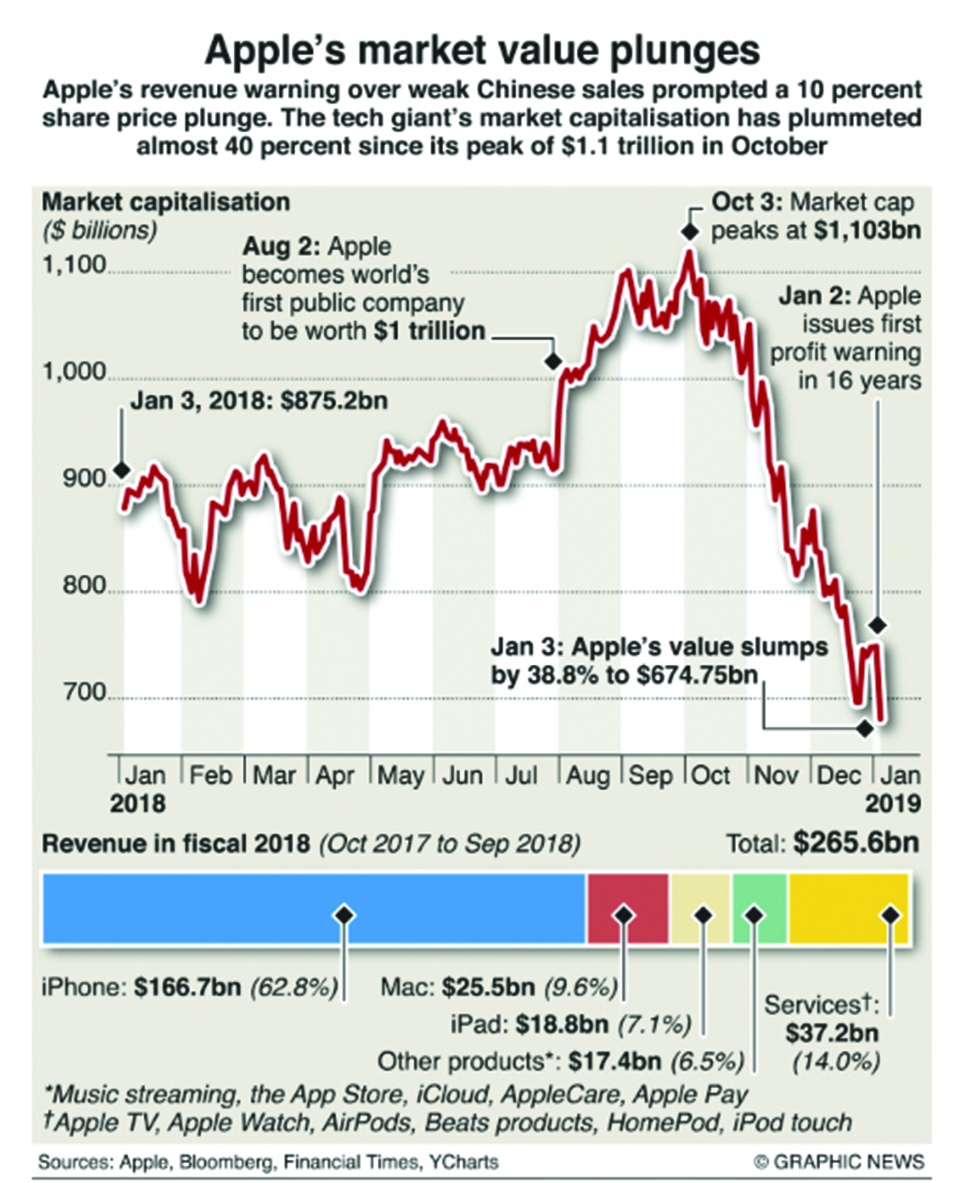Apple’s revenue warning over weak Chinese sales prompted a 10 percent share price plunge. The tech giant’s market capitalization has plummeted almost 40 percent since its peak of $1.1 trillion in October. Since 2016, when global sales of Apple’s iPhones slowed by $18.3 billion, Chief Executive Officer Tim Cook responded by increasing the smartphone’s average sales price. Between 2017 and 2018 the iPhone was hiked from $618 to $793, while a top-of-the-range iPhone XS Max cost a staggering $1,449.
Infographics: Apple stock plunge shakes U.S. economy

Apple’s “services,” which includes music streaming, the App Store and iCloud, showed an increase of $12.9bn, and “other products” — Apple TV, Apple Watch, AirPods — jumped by $6.3bn since 2016. While this $19.2bn jump in revenues covers the iPhone losses, they represent less than 12 percent of iPhone sales. Apple also receives around $9bn from Alphabet Inc. which pays Apple to make Google the default search engine in the
iPhone’s Safari web browser.



































